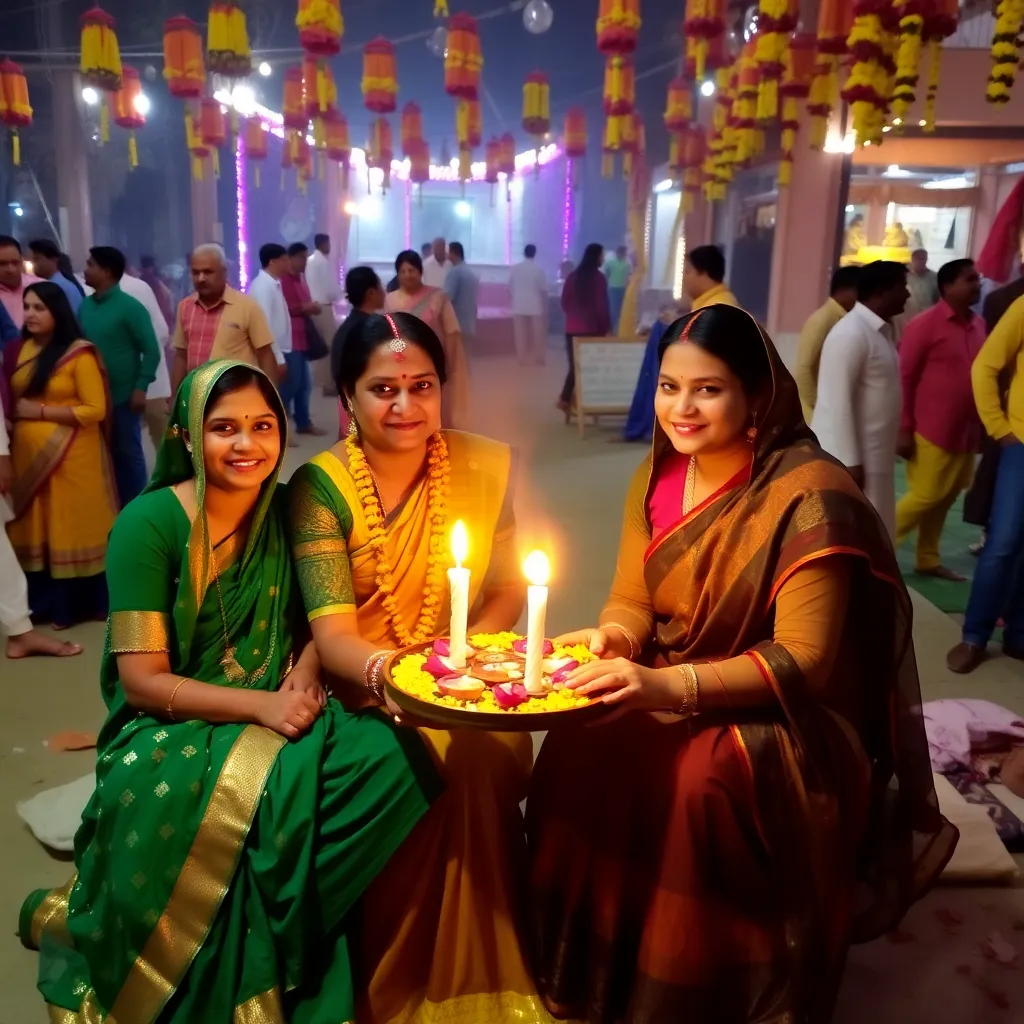Growing up in India showed me that holidays are the threads that bind families together more than only festivities. The laughs, the cuisine, the customs, and the tales spoken during these unique moments have all influenced who I am now. Allow me to guide you on my path of discovering the magic of Indian festivals and customs and how they enhance family ties across generations.
Festivals And Family Bonding In India: The Foundation of Our Culture
Our festivities right away spring to me when I consider what defines India. Every event unites families in ways nothing else could. From the tiniest hamlets to the most bustling metropolis, festivals change ordinary life into something wonderful. The beauty of Indian holidays and rituals is in how they bring everyone home. Festivals are when everyone strives to reunite despite family members scattering all over the year. I have witnessed personally how these events mend old scars, make new memories, and deepen the ties that bind us all.
Read also: Emerging Indian Social Networking Sites
The Heart of Cultural Celebrations in India: Family Reunions
Festival season in India is primarily about family time above everything else. As a kid, I recall how thrilled I would be to have my grandparents, aunts, uncles, and cousins come to our house. For certain people, these unique events called for days of travel. Why are these gatherings so significant? Festivals offer a pause button in our fast-paced modern world, hence it's only natural. They allow us to leave work and school to concentrate on what is important - our relationships with loved ones.
The Joy of Preparation: Bringing Families Together
The planning that takes place before the big day is actually one of my favourite aspects of any festival. Working together during these times fosters some of the strongest ties.
Kitchen Bonding: Recipes Passed Through Generations
The kitchen becomes the heart of the home during festival season. Watching my grandma and mother work their magic taught me to create so many classic recipes. These were tales about our family history, values, and customs wrapped in the scents of spices and sweets, not only cookery classes.
Did you know?Many festival meals in India are only prepared during particular events, therefore their eventual appearance on the table is very unique.
Home Decoration: Creative Family Projects
Decorating the house for festivities converts mundane areas into enchanted ones. I recall my father hanging strands of marigolds around our entrance and my mother making lovely rangoli designs on the floor with coloured powders. These tasks were bonding events that allowed everyone to share their creativity, not only drudgery. Making decorations together allows every family member, young and old, a means to engage in the celebration. Even little children may contribute to easy chores, so enabling them a feeling of pride and belonging.
Major Festivals Celebrated in India: A Family Guide
Allow me to relate some of my own encounters with the largest festivities uniting families all throughout India.
Diwali: The Festival of Lights and Family Reunions
Diwali is especially dear to me. The five-day festival is all about light overcoming darkness and goodness winning over evil. Beyond the spiritual significance, it is the greatest family reunion moment. I recall the thrill of cleaning our house from top to bottom (yes, even cleaning becomes enjoyable around festival time!), buying for new outfits, and getting ready tasty goodies weeks in advance. The entire family would get together on Diwali night to light diyas (oil lamps), launch fireworks, and trade presents. The finest part? Staying up late into the night playing card games with my cousins while the elders sipped cups of chai. These little events fostered ties that have last all through our life.
Holi: Colorful Connections Across Generations
Holi brings families together in the most colorful way possible! Everyone, from children to seniors, rich to poor, single to married, engages in putting colours on one another's faces during this spring celebration, breaking down all barriers. My introverted grandpa will always be remembered for suddenly being lively during Holi and chasing us children around with pink powder in his hands. These uncommon times of witnessing various aspects of relatives foster closer ties that endure long after the colours fade.
Raksha Bandhan: Celebrating Sibling Bonds
Some festivals focus specifically on certain family relationships. Raksha Bandhan honours the unique bond between siblings. Sisters' rakhis, or ornamental threads, are tied around their brothers' wrists to represent protection and caring. Though easy, this custom gives siblings a set time every year to show their love and will to help one another. Even cousins join in my family, widening the circle of love and protection.
How Festivals Bridge Generation Gaps
Indian festivals' ability to link several generations who may otherwise find it difficult to relate to one another is among its most potent features.
Grandparents as Storytellers: Passing Down History
Festival times are when grandparents really shine as the custodians of family history and traditions. The tales my grandma shared during festival celebrations helped me to better understand my family's history more than any other source. During the laid-back vibe of festivities, these narrative sessions occur organically. Older generations tell stories of how festivals were celebrated in their childhood, preserving traditions and ideals when families gather together following ceremonies or make meals.
Tech-Free Bonding: When Phones Get Put Away
Festivals in the internet age provide unusual chances for real, undistracted dialogue. Even the most phone-obsessed teens in my family have been known to put down their gadgets for significant festival rites and events. The shared experiences of participating in traditions together create moments that no social media post can replace. These real-life connections remind us what family is truly about.
Festivals And Family Bonding In India: Regional Variations
India's variety assures that households in various areas honour distinct festivals in their own unique manner.
Onam: Kerala's Family Harvest Celebration
Onam in Kerala unites families for boat races, floral displays (pookkalam), and delicious food presented on banana leaves. Up to 26 dishes may be included in the Onasadya dinner! Preparing this feast calls for the whole family toiling together for hours. I once visited Kerala during Onam and was amazed at how every home, regardless of religion, celebrated this cultural tradition together.
Read also: Indian Social Structure And Family System
Durga Puja: Community Celebrations in Eastern India
Durga Puja in West Bengal builds bigger communal ties beyond individual households. Areas construct intricate temporary buildings (pandals) containing lovely statues of Goddess Durga. Often families visit these exhibits together, perhaps reuniting with friends and relatives they would only see during this unique period. Belonging to something bigger than simply your immediate family fosters societal ties that help all people.
Modern Challenges to Festival Family Bonding
While festivals are still great occasions for family bonding, modern life has brought difficulties to traditional customs.
Distance Dilemmas: When Family Lives Far Away
Gathering the whole family for every occasion has grown challenging as more Indians migrate for employment and education to other cities and nations. Having academics or employment keep me away has caused me to miss festivities, which I have seen personally. But today technology helps to close these gaps. Video calls during important holiday times enable faraway relatives participate electronically. Although not the same as being physically there, these relationships help preserve ties until the next in-person gathering.
Adapting Traditions: Making Old Customs Work for New Generations
Certain customs might strike some younger relatives as antiquated or tedious. Instead of totally abandoning traditional customs, I've seen families effectively change them to fit contemporary living. For instance, my aunt maintained the most important aspects while simplifying our family's complex Diwali preparations. Instead of spending days making sweets from scratch, she organizes a family cooking day where everyone helps prepare just a few special items. This preserves the bonding experience while fitting into busier schedules.
Health Benefits of Festival Family Bonding
The connections formed during festivals don't just feel good - they're actually good for us!
Emotional Well-being: The Festival Effect
Research indicates that good family ties enhance emotional well-being and mental health. Festivals offer organised ways to enhance these relationships, hence building a support system that enables family members to navigate trying times. Relatives who might be experiencing personal issues seem to find solace and fresh vigour during festival family reunions, I have observed. The feeling of belonging and consistency offers emotional security difficult to obtain anywhere else.
Physical Health: The Power of Celebration
Many festival traditions actually promote physical health. The fasting and feasting cycles of certain celebrations help cleanse the body. Festival foods often include seasonal ingredients with specific health benefits. Beyond diet, the physical activities involved in celebrations - from dancing during Garba at Navratri to the walking involved in visiting relatives - keep families active together in enjoyable ways.
Creating Your Own Festival Family Traditions
While traditional celebrations are wonderful, each family can also create their own special traditions that strengthen bonds.
New Traditions That Honor Old Values
Many of my favourite times of family bonding come from customs my parents designed especially for our family. Diwali saw a unique breakfast contest in which every family member attempted to provide the most gorgeous dish of food. These special customs become into cherished memories siblings take into their own households. While respecting the spirit of the celebration, don't be afraid to begin new customs that represent the particular character of your family.
Documenting Celebrations: Creating Family History
Capturing movies and photographs during festivals helps to preserve memories for next generations. I value the vintage family albums depicting my grandparents marking festivals decades before. Consider creating a family festival journal where everyone writes their favorite moments each year. This becomes both a bonding activity and a treasured family document over time.
Teaching Children About Cultural Celebrations in India
For families with young children, festivals provide perfect opportunities to pass down cultural values and create strong family identities.
Learning Through Doing: Hands-On Festival Education
Being involved teaches kids the most. Even very young children can assist with basic festival preparations like table setup for unique meals or flower decorating. These events helped me to organically discover the narratives underlying festivals; elder family members explained customs as we collaborated. This casual approach to cultural education makes learning enjoyable rather than feeling like a lesson.
Read also: Exploring the New Adobe Photoshop App for iPhone
Festival Stories: Making Mythology Relevant
The mythological stories behind many Indian festivals contain valuable lessons about courage, honesty, love, and other important values. When told in age-appropriate ways during relevant celebrations, these stories become meaningful rather than abstract. My grandfather had a gift for telling these ancient tales in ways that connected to our modern lives, helping us understand the deeper meanings behind the celebrations.
Conclusion: The Lasting Impact of Festival Family Bonds
Indian customs and celebrations are the basis of familial ties that support us throughout life. The memories formed during these unique occasions serve as reference points that define our beliefs and provide us a feeling of identity and belonging. Wherever I go, I take the lessons learnt at family holiday festivities. These experiences form who we are as people: the patience taught when creating complex rangoli patterns, the kindness modelled in giving presents and feeding others, the happiness discovered in simple times together. Family connection that takes place during festivals becomes more important in our society growingly detached. The time spent interacting with loved ones during these unique events, whether you are honouring historic customs or developing new ones, forms the relationships that really count in life.













